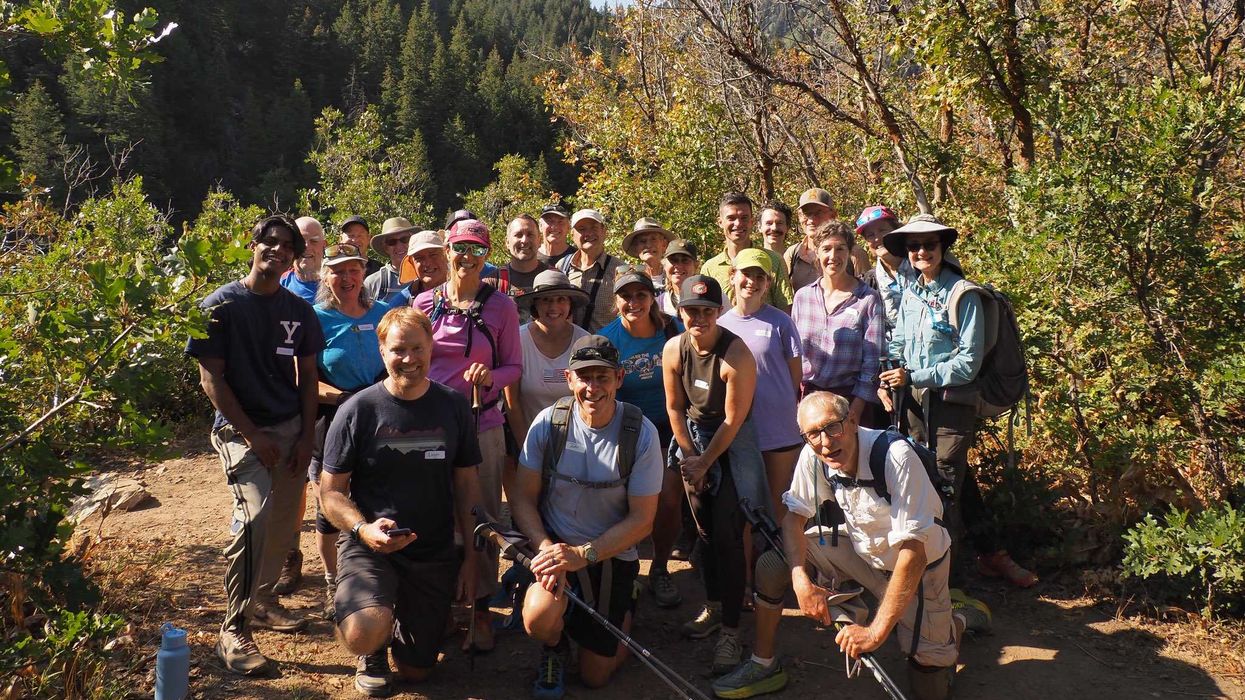So many of us watch the news, see the attacks on our democracy, and wonder what more we can do. We know that protests are critically important, but few of us see the value of going inside and building relationships with elected officials. “Why would I do that?” we might ask. “Why would it matter?” Here’s one example.
President Trump’s fiscal year 2026 (FY26) budget calls for a 55 percent cut to the Environmental Protection Agency (EPA), a horror that should have all of us out on the streets. The cuts would slash water infrastructure funding by nearly 90 percent, reduce different enforcement functions by between 30 and 49 percent, and eliminate environmental justice programs.
But not all is lost. The House Appropriations Committee’s bill calls for a 23 percent cut, and the Senate Committee’s bill would enact a 5 percent cut.
Yes, protests are critically important, but we need people going inside, developing relationships with elected officials, and urging them to stand for the Senate’s more modest 5 percent cuts. What I’m proposing flips the adage “You can’t see the forest for the trees” and gets us to look for the trees that can be saved, even when we try to prevent someone from trying to burn down large portions of the forest.
Not all relationship building needs to happen inside. Nine days before the heinous murder of Conservative activist Charlie Kirk and just six miles from Utah Valley University, more than two dozen constituents joined their Republican U.S. Senator for a three-and-a-half-hour hike. You heard that right, a three-and-a-half-hour hike with their Republican Senator. What was the issue animating these constituents to hike with their Republican Senator? Climate change.
Their annual hike with Senator John Curtis (R-UT) began in 2017 when he was in the House. That first hike began a relationship that eventually inspired Curtis to launch the Conservative Climate Caucus, which grew to 87 House Republicans by the end of 2024.
These Utahns aren’t the only ones going outside to build relationships with elected officials. On a Citizens’ Climate Lobby webinar in late 2024, Curtis urged attendees to invite their elected officials out for a hike.
Citizens’ Climate Lobby volunteers in Nebraska did just that. Rep. Don Bacon (R-NE) accepted their invitation for a 1.5-mile hike through a restored prairie at the University of Nebraska Omaha’s Glacier Creek Preserve and invited other environmentalists to join them.
“We stopped in the shade to give our appreciation for Rep. Bacon’s sign-on to a number of Dear Colleague letters on the clean energy tax credits,” said Kay Carne, one of the volunteers who organized the hike and serves as CCL’s liaison to Rep. Bacon’s office.
They continued their conversation after the hike in a restored barn on the property. “Rep. Bacon shared details and stories on his efforts to protect clean energy throughout the congressional process these past months, as many tax credits were scheduled to end much earlier,” Carne said.
Efforts to protect the EPA, stave off the worst damage to the clean energy tax credits, and stop Trump’s bludgeoning of global health programs, discussed in an earlier column, are fueled by relationships built with members of Congress on both sides of the aisle. These are important but rarely seen ways to build spine in our elected officials and in ourselves. These relationship building activities are key aspects of transformational advocacy, where you work to change an issue and you are changed in the process.
How do you feel when you’re watching the news and learn about the latest abuse of power? You might reach to turn it off. But what else? There are a myriad of important actions you could take, but few of them include building a relationship with your elected official.
Now imagine how you’d feel in the middle of a three-hour hike with your Senator. A lot different, I bet. You can go here to get my help linking you with a group that works to deliver transformational advocacy.
Feeling fed up with what’s going on in the world isn’t a flaw—it’s fuel, and transformational advocacy is a little-known but important way to use it.
Sam Daley-Harris is the author of “Reclaiming Our Democracy: Every Citizen’s Guide to Transformational Advocacy” and the founder of RESULTS and Civic Courage. This is part of a series focused on better understanding transformational advocacy: citizens awakening to their power.



















